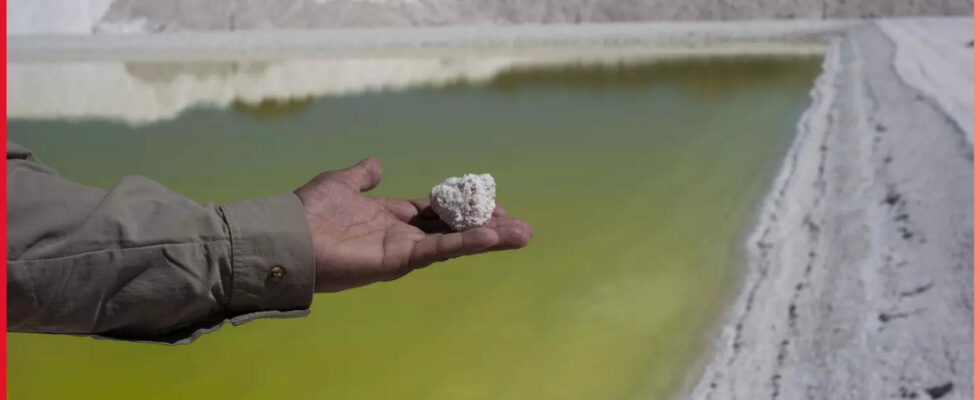This is a “unique” deposit in Europe.
It is a discovery that would make the whole world pale. France has just discovered a significant reserve of a particularly strategic mineral: that of “white gold”. This major resource is usually imported from Australia, Chile or China. Soon, France will be able to enter this market and join the fight with the main producers. This is good news because it is an element that will become essential in the years to come.
Indeed, this famous “white gold” is mainly known under its initial name, lithium. A name that has become more widespread because it is an essential component of many electronic devices. It is mainly found in smartphone batteries, electric cars, but also in batteries. “It has the characteristic of being able to store electricity much better than all other materials,” explained Didier Julienne, an expert in minerals, to the Figaro.
It is in Echassières, in the heart of Allier, a natural lithium reserve, that a quarry will be exploited. A “unique” deposit in Europe, according to the project leaders. The reserves would be colossal: 34,000 tonnes could, on average, be extracted each year, for 25 years. Enough to directly compete with Australia (64,000 tonnes per year) and Chile (39,000), and double China (19,000). In total, this would represent 716,000 tonnes over the entire operating life of the mine.

Carried out by the company Imerys, this exploitation is all the more important since from 2025, new vehicles will have to be electric or hybrid to be sold, and therefore contain lithium. According to projections, the French mine would make it possible to equip the equivalent of 700,000 electric cars with batteries each year. An asset for the French industry. Production should start in 2028.
Behind this project, however, there is the question of the environmental impact. In a press release, the association France Nature Environnement Allier considers that “lithium extraction presents environmental, social and health challenges that are too significant to be ignored.” The collective denounces a need for “phenomenal” quantities of water, while the sector is affected by drought orders, but also waste “leading to water, soil and air pollution because they contain toxic substances that are disseminated.”
If Alan Parte, director of Imerys’ two lithium projects in Europe, acknowledged to The Tribune that “the “clean mine” does not exist, in the sense of “without impact””, he specifies that the water will be taken “either from the Montluçon wastewater plant, for the conversion plant, or from the Sioule for the extraction mine, which represents on average one thousandth of its average flow, and less than 1% during its most fragile periods.” The ecological and landscape impact studies will not be delivered until the end of 2025 and the beginning of 2026.
